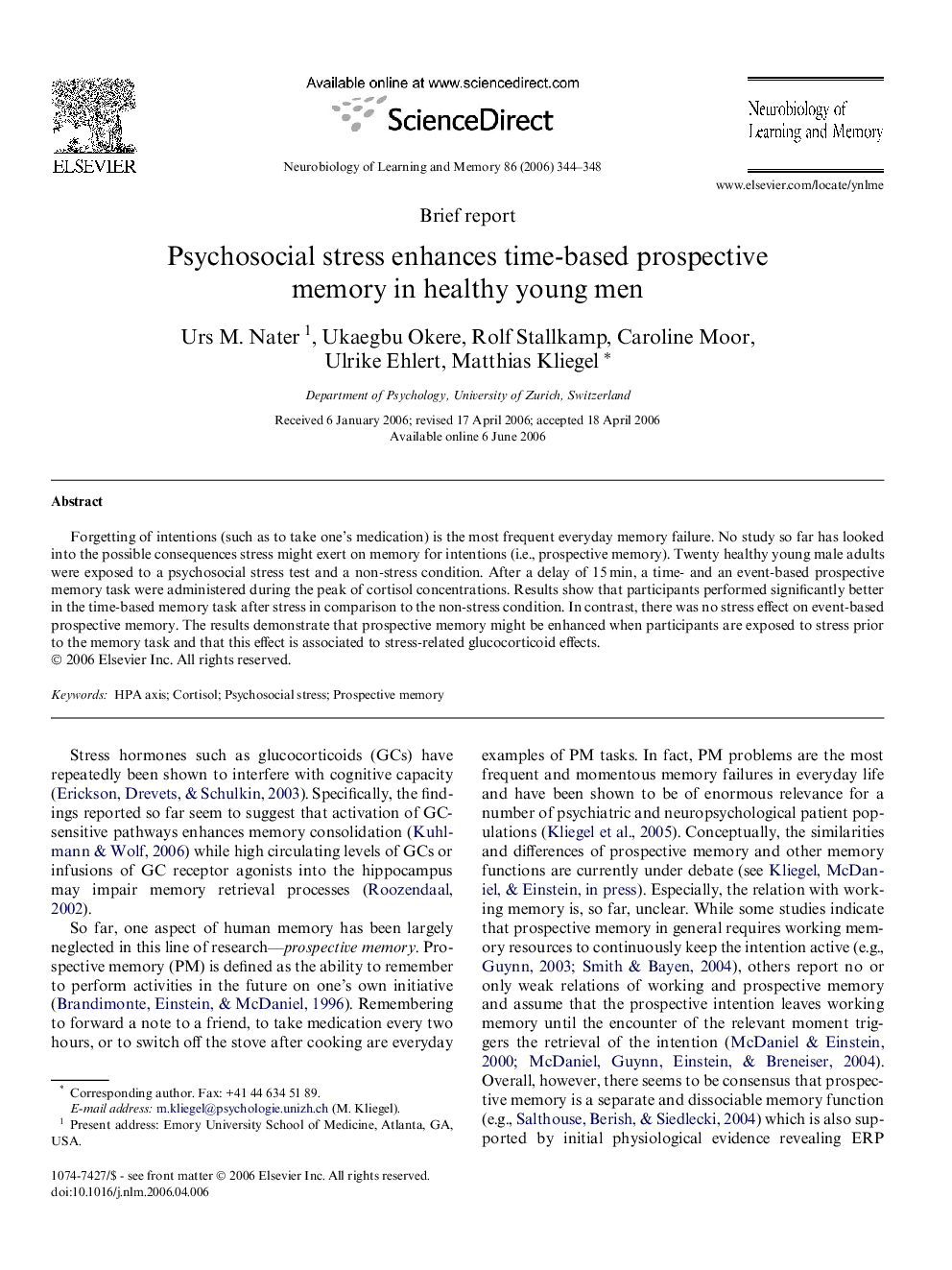| Article ID | Journal | Published Year | Pages | File Type |
|---|---|---|---|---|
| 937070 | Neurobiology of Learning and Memory | 2006 | 5 Pages |
Forgetting of intentions (such as to take one’s medication) is the most frequent everyday memory failure. No study so far has looked into the possible consequences stress might exert on memory for intentions (i.e., prospective memory). Twenty healthy young male adults were exposed to a psychosocial stress test and a non-stress condition. After a delay of 15 min, a time- and an event-based prospective memory task were administered during the peak of cortisol concentrations. Results show that participants performed significantly better in the time-based memory task after stress in comparison to the non-stress condition. In contrast, there was no stress effect on event-based prospective memory. The results demonstrate that prospective memory might be enhanced when participants are exposed to stress prior to the memory task and that this effect is associated to stress-related glucocorticoid effects.
